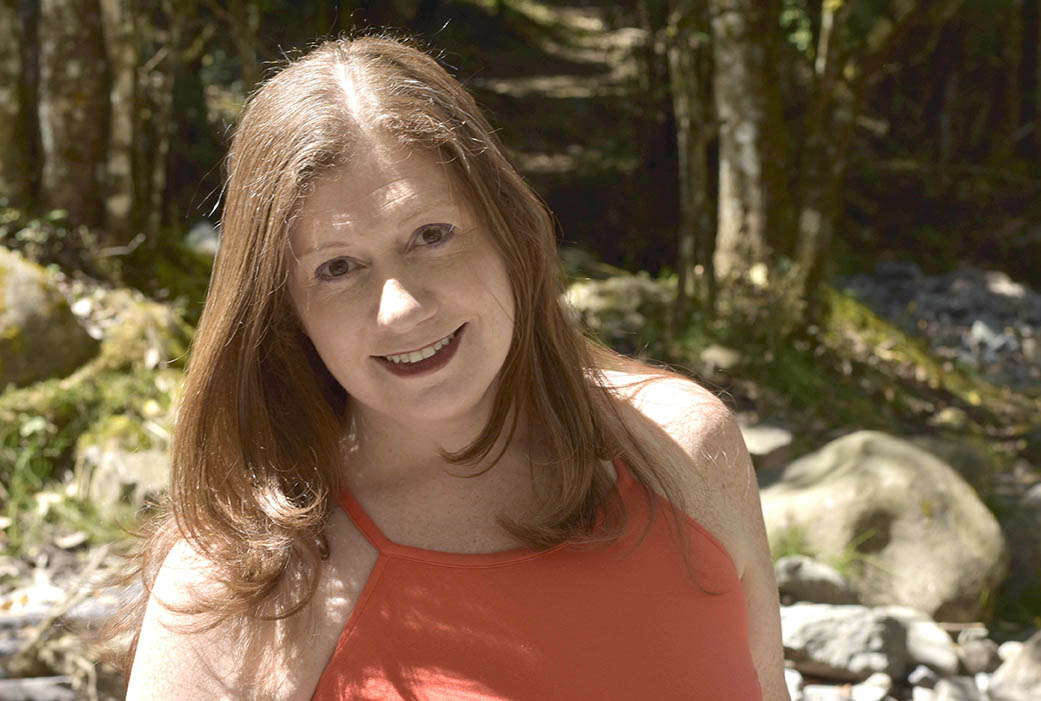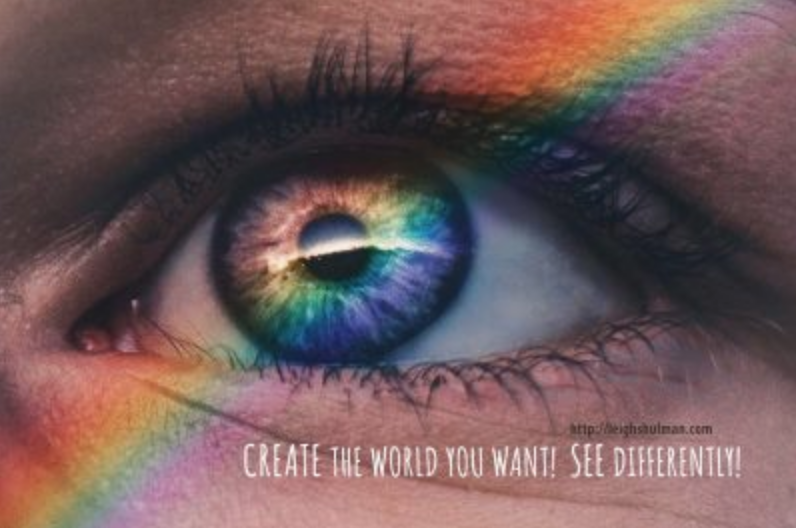If I told you what you see isn’t the way it is, would you choose to see things differently? If I proved to you that the way you move through time can be manipulated, would you listen and find out how?
Human perception is a tricky thing. We like to believe there’s a discrete set of facts making up our worlds. We pretend we base our lives on rational thought, but in truth, we are deeply affected by forces we often can’t see or feel. Where we’ve grown up, the language we speak, the way we interact with our children, our work, our friends, all create the world around us.
There’s great power in knowing this because it means we can change where we are and what we do by choosing to see differently.
And when you see differently, you can create differently. You can tell your story from different angles. You can overcome obstacles. You can be a titan or rule the world or crash through your comfort zones and create wonderful new things for yourself and the world around you.
These six TED talks look at various aspects of our lives, things we tend to believe are static and immutable. These talks show us how we can see differently.
Shonda Rhimes: My year of saying yes to everything
I love this talk so much. It’s inspirational, aspirational, honest and based on her book of the same name. Shonda Rhimes asks, “What if you said yes to things that take you out of your comfort zone?”
My yes was selling everything I owned and leaving New York to travel full time. If you told me then what would be possible based on saying yes, I wouldn’t have believed you. Now, I see differently.
She also talks openly about balancing work and family. She owns her work and has no qualms about calling herself a titan and recognizing her incredible accomplishments. And she has indeed accomplished much. I’m in awe at all she does. She shares with us that she’s not perfect. (Who is?) She can’t do everything, but it’s a practice. You keep working and moving forward and you can create the hum, that feeling in life that you are in the right place, at the right time doing exactly what you want to be doing with the people you love most.
I may have had tears when I finished watching. I may watch this video regularly to pump myself up when I’m not particularly feeling the hum.
Lera Boroditsky: How language shapes the way we think
The German word for the moon male. In Spanish, the moon is female. Would it surprise you to know Germans are more likely to describe the moon in stereotypically male terms? And Spanish speakers use stereotypically female terms?
What about cultures that measure distance in the direction of the compass? Would it surprise you to know those cultures are more spatially oriented than those that don’t?
When we choose our words with intention, we can shape the world around us. Lera Boroditsky ends with the question: “What thoughts do you wish to create?” There’s incredible power in our words.
Adam Grant: Are you a giver or a taker?
If you always give when people ask, if you never say no, you give up your own needs. But if you’re a giver who knows how to set limits on your giving, you are more likely to be at the top of your field.
Adam Grant’s talk explores how different people give to others. He discusses what generosity means and how it helps us not only be better people but more effective thinkers and innovators as well.
Brian Little: Who are you really? The puzzle of personality
In this talk, Brian Little talks about the traits of extroverts and introverts. How often each has sex. Whether they use nicknames for the people they know. How each uses public restrooms. Little, who calls himself an extreme introvert, likes to hide in a stall when he needs space away from people. Little also points out that personality traits change depending on the situation. Even though he’s an introvert, he becomes a funny, outgoing extrovert when he’s teaching and on the TED Talks stage.
I get really nervous before parties, and recently I had three in one weekend. One birthday party for a friend. Two birthday parties for kids in Charlie’s class. Did I mention how nervous they make me? What do I say? Who will I talk to? Will I be boring? Now try doing this in a second language, and I’m a mess.
Little’s talk made me wonder. Would acting differently change who I am? So I decided to test it at these three parties. I forced myself to act like an extrovert. I asked questions I wouldn’t normally ask. I called people by nicknames. I was even more touchy-feely than my usual, “please don’t come near me and I break your personal barrier either.”
Now, I’m not suddenly an extrovert, but I did have a lot of fun and met more people than I usually do.
When we act as if, we create different realities, and who we are at the core isn’t always written in stone. While we can’t become other people, we can shape our actions to create more of how we want to be.
Laura Vanderkam: How to gain control of your free time
Laura Vanderkam’s talk begins with an example of a woman who, when faced with a flood in her basement, somehow found the seven extra hours she needed to fix the flood and make her house livable again. Point being? We choose our priorities and make time for them.
When you need free time, somehow you find it. While you can’t make more time, time is elastic. It will stretch to accommodate the things important to you. Problem is, we too often focus on things that aren’t most important to us.
Vanderkam asks if we looked into the future and wrote a performance review for next year, what we would include? What three to five things would we include as our top accomplishments? This particularly resonates with me, because it’s the basis of my book The Writer’s Roadmap: Paving the Way To Your Ideal Writing Life. If you want to be a writer, you can. It’s not magic. It’s about knowing what you want and then making it happen one small moment at a time.
Elizabeth Gilbert: Your elusive creative genius
What if we stopped thinking that genius lives somewhere far away? Or that we have to prove ourselves in specific ways in order to create, and instead focused on the work we do and what we love?
Genius presents itself in many ways. We just have to choose to see it and act on it.


